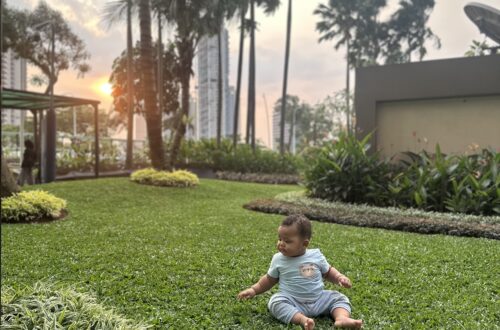The Foundation of Montessori Education
The First Plane of Development (0-6 Years)
Maria Montessori was a pioneering educator whose revolutionary approach to early childhood development transformed how we understand and learning. In this post, we’ll explore her inspiring biography, the four key periods of development, and essential Montessori concepts like the absorbent mind, sensitive periods, and normalization, Whether you’re parent, educator, or simply curious about Montessori education, this guide will help you understand why early intellectual stimulation is so important during a child’s formative years.
Montessori’s Four Planes of Development
Maria Montessori divided childhood into four distinct development stages, which she called planes of development:
- First Plane: Birth to 6 years – Absorbent mind
- Second Plane: 6 to 12 years – Reasoning Mind
- Third Plane: 12 to 18 years – Social Independence
- Fourth Plane: 18 to 24 years – Spiritual and Moral Independence
Each plane reflects unique needs and characteristics of the child. In this article, we’ll focus on the first plane, which Montessori believed was the most crucial.
What Happens During the First Plane of Development (0-6 Years)?
This is a time of rapid growth and unconscious learning. Children in this stage absorb knowledge effortlessly from their environment, emotional responses, and even moral values without formal instruction.
The child absorbs everything without knowing he is absorbing it.
The Absorbent Mind “Your Child’s Greatest Superpower”
The term “absorbent mind” refers to the young child’s ability to soak up everything from the environment.
it’s divided into two phases:
- Unconscious Phase (0-3 years) The child absorbs everything instinctively and without awareness. This includes language sounds, motor coordination, emotional tone, and even social norms.
- Conscious Phase (3-6 years) The child begin intentionally explore, ask question, and show clear interest in specific activities.
Creating a rich, respectful, and orderly environment during this stage is critical, because it directly shapes the child’s personality and intelligent.
Sensitive Periods “Windows of Opportunity”
Montessori observed that children pass through sensitive periods, which are limited windows when they are especially attract to and capable of mastering specific skills.
Here are the key sensitive periods from 0-6
- Language (birth to 6 years)
- Order (0-4 years)
- Movement (birth to 4.5 years)
- Small objects (1-3 years)
- Refinement of the Senses (2-6 Years)
- Social behavior (2.5 – 6 years)
If we missed this periods, learning becomes harder later on. But when supported, children learn with joy and ease.
Why Early Intellectual Stimulation Matters
Early stimulation is not about flashcards or academic drills. Montessori emphasized experiential learning where the child learns by touching, doing, exploring, and repeating.
Benefit of proper intellectual stimulation include:
- Faster language development
- Better emotional regulation
- Strong problem solving skills
- Independence and confidence
- Stronger brain connectivity
Tips: Real life object, nature, child sized tools, and safe freedom to explore are all better than screens or noisy toys.
Normalization The Montessori definition of Success
Montessori described “normalization” as the process where a child becomes calm, focused, and joyful through meaningful work. Characteristics of a normalized child:
- Focused attention
- Self discipline
- Independence
- Love for order and beauty
- Inner peace
Normalization occurs naturally when the child is allowed to follow their sensitive periods in a peaceful environment with adult respect and trust.
The First Six Years Shape a Lifetime
The first plane of development lays the foundation for everything that follows. The brain build its structure. Habits form, Language become solid, and the child’s personality begins to unfold.
Montessori show us that with the right environment, respectful adults, and freedom to explore, every child can grow into a focused, loving, capable human being.
What’s Next?
In our next article, we’ll look deeper at the Montessori prepared environment, how to design Spaces that support independence, curiosity, and concentration at home or in school.

2 Comments
Pingback:
Pingback: